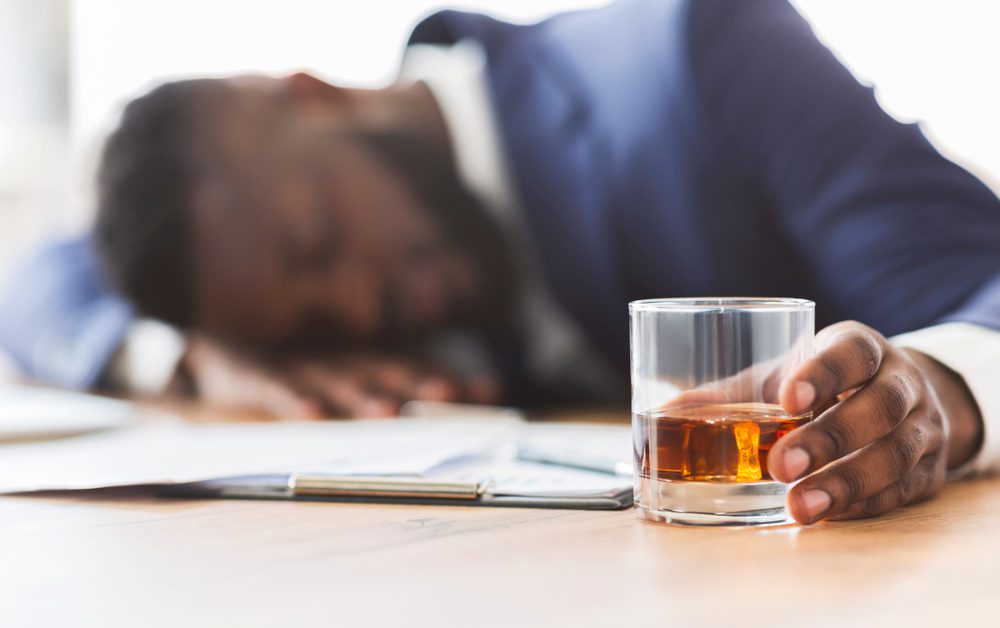We’ve all heard the morning-after stories: “I can’t remember anything from last night.” While these episodes of alcohol-induced memory loss might be played for laughs in movies or dismissed as just part of a wild night out, brain specialists and mental health experts want you to know that these blackouts might be telling you something important about your psychological well-being.
What really happens in your brain during a blackout
Contrary to popular belief, blacking out isn’t about passing out or losing consciousness. Instead, it’s more like your brain’s record button gets stuck while you’re still awake and functioning. During these episodes, you might be walking, talking, and even seeming perfectly normal to others around you, but your brain isn’t creating new memories of these moments.
The science of forgotten memories
Inside your brain sits a small but mighty structure called the hippocampus, which acts like your personal memory-making factory. When alcohol floods your system, it essentially jams the machinery in this factory. The result? Your brain becomes temporarily unable to transform current experiences into memories you can access later.
Why some memories disappear completely while others just get fuzzy
Not all alcohol-related memory loss is created equal. Sometimes, you might experience what experts call an “en bloc” blackout, where a chunk of time simply vanishes from your memory, as if someone pressed delete on several hours of your life. Other times, you might have what’s known as a “brownout,” where memories are fuzzy but can sometimes be recalled with the right triggers or reminders.
The hidden mental health connection
Here’s where things get interesting: researchers have discovered that frequent blackouts might be more than just a sign of drinking too much. They could be revealing something deeper about your mental state and how you’re coping with life’s challenges.
When drinking becomes self-medication
Many people reach for a drink to unwind after a stressful day or to feel more comfortable in social situations. However, when this coping mechanism becomes regular, it can create a dangerous cycle. Alcohol might temporarily ease feelings of anxiety or depression, but as tolerance builds, you might need more to achieve the same effect, increasing the risk of blackouts.
The anxiety-alcohol loop
Anxiety and alcohol form a particularly troublesome partnership. While a few drinks might seem to calm your nerves in the moment, the next day’s hazy memories (or complete lack thereof) often trigger even more anxiety. This can create a cycle where drinking leads to blackouts, which cause anxiety, which then leads to more drinking.
Depression’s dangerous dance with alcohol
Depression and alcohol blackouts share a complex relationship. People experiencing depression might drink more heavily, leading to more frequent blackouts. These episodes can then worsen feelings of depression, especially when accompanied by regret or shame about forgotten actions or conversations.
The morning after: more than just a hangover
The psychological impact of not remembering parts of your night can extend far beyond the physical hangover. Many people experience what experts call “hangxiety” – a mix of anxiety, dread, and worry about what might have happened during their blackout periods. This emotional aftermath can be particularly devastating for those already struggling with mental health issues.
Your brain’s warning system
Think of blackouts as your brain’s way of waving a red flag. While having an occasional memory lapse after drinking doesn’t necessarily mean you have a serious problem, recurring blackouts deserve attention. They might be signaling that your relationship with alcohol needs examination or that you’re using drinking to cope with underlying emotional issues.
The social media complication
In today’s digital age, blackouts carry an additional layer of complexity. Waking up to find social media posts or photos from moments you can’t remember can intensify feelings of anxiety and shame. This modern phenomenon adds new psychological weight to alcohol-induced memory loss.
Breaking the silence around blackouts
Despite how common blackouts are, especially among young adults, many people feel too embarrassed or ashamed to talk about them. This silence can prevent people from recognizing patterns in their drinking behavior or seeking help when they need it. Opening up these conversations can help reduce stigma and encourage earlier intervention.
When drinking becomes a memory thief
Regular blackouts don’t just affect your memories of nights out; they can impact your brain’s overall ability to form and retain memories. Research suggests that frequent heavy drinking and blackouts might lead to longer-term memory and cognitive issues, even when you’re not drinking.
The recovery path forward
Recognizing that your blackouts might be connected to mental health challenges is an important first step, but it’s not the last one. Mental health professionals emphasize that addressing both alcohol use and underlying psychological issues simultaneously tends to be most effective.
Building a healthier relationship with alcohol
Creating a safer relationship with alcohol doesn’t necessarily mean complete abstinence for everyone. For some people, it might mean learning to recognize emotional triggers that lead to heavy drinking, developing alternative coping strategies, or setting firm boundaries around alcohol consumption.
The role of professional support
Mental health professionals can provide valuable tools and strategies for managing both alcohol use and underlying emotional challenges. They can help you understand the root causes of your drinking patterns and develop healthier coping mechanisms that don’t involve reaching for a bottle.
Your brain’s remarkable healing ability
The good news is that your brain has an amazing capacity for healing. When given the chance through reduced alcohol consumption and proper support, your memory function and emotional well-being can improve significantly. Many people find that addressing their relationship with alcohol also leads to improvements in their overall mental health.
Remember, seeking help for alcohol-related memory loss isn’t just about drinking less; it’s about understanding what your blackouts might be trying to tell you about your mental health. Whether you’re dealing with stress, anxiety, depression, or other emotional challenges, there are professionals ready to help you navigate both the psychological and physical aspects of your relationship with alcohol.












